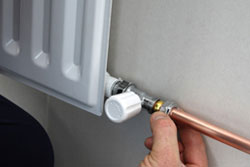
- Categories
- Home
- 24 Hour Plumbing NYC
- Affordable Plumbing
- Commercial Plumbing
- Emergency Plumbing NYC
- Industrial Plumbers
- Industrial Plumbing
- New York Plumbing Code
- New York Plumbing Directory
- New York Plumbing Problems
- New York Plumbing Supply
- Plumber Long Island
- Plumbing Contractor New York
- Plumbing Heating Services
- Plumbing Jobs in NYC
- Plumbing Quotes
- Professional Plumbing Services
- Western New York Plumbing
Industrial Plumbing
Industrial plumbing differs from residential and commercial plumbing services not just by the size of buildings and constructions where a plumbing project takes place, but for the higher qualifications of the technicians working on a given project. Degree of specialization is not just based on technical skills, but on training and experience as well. More often Master Plumbers for industrial projects are also architects or engineers.
Starting with Industrial Plumbing
Among the many industrial plumbing-oriented careers and training programs for Industrial plumbing the most common of them are:
- Plumbing Technician
- Electronics Systems Technician
- HVAC Technician Program
- Electrical Technician Program
While some of these technical careers constitute the basic formation to apply for an entry-level apprenticeship program or to enroll to a university, others can help students to self-employment as plumbing contractors.
Industrial Plumbing Safety
Industrial plumbing contractors and technicians do not only have a background formation to work on industrial projects, but a general knowledge of industrial safety. Professionals in this field have to learn local building code standards, how to get building permits and how to remove existent code violations. They can also localize, arrange or design pipe systems for large structures whether there is a blueprint that serves as a reference or designed by them before any actual plumbing job takes place.
Industrial Plumbing Careers
To pursue a plumbing-oriented career, you must be aware that engineering encompasses different branches for the design, development and analysis of technological solutions.
There are four major engineering branches; chemical engineering, civil engineering, electrical engineering, and mechanical engineering, which are divided into sub-disciplines including aeronautical, agricultural, biomechanical, biomedical, computer hardware, computer software, electrical and electronics, mineral, nuclear, photonics, sustainability design, and systems engineering. However, there are roughly 200 different interdisciplinary subjects for such disciplines and their major branches.
When it comes to industrial plumbing, the most suitable areas of engineering that you can follow are thermal engineering, to earn the knowledge in heating and cooling processes. Energy engineering, which provides you with education on solar and wind systems. Nonetheless, the engineering area associated with plumbing is building services engineering. Even though, this last career must not be confused with civil engineering despite they are closely related.
As a building services engineer you will earn technical knowledge to perform all types of mechanical engineering tasks including but not limited to electrical and mechanical services, refrigeration, heating, air conditioning, ventilation and HVAC, artificial lighting, installation of telecom and IT lines, low voltage systems, CCTV, alarms and security systems, energy and gas supply and so on. All of them useful disciplines to perform industrial plumbing.
On the other hand, civil engineers focus on design, construction and maintenance of structures and infrastructure, supervising the construction of buildings and facilities, besides bridges, roads and dams, restoration of building structures and facades, etc. While civil engineers have overall knowledge of the jobs that a building service engineer does, they are not specialized in plumbing related projects. Therefore, now that you know, it is all up to you going for the technical education that you really need.
